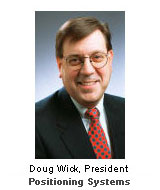How can I get my employees to be more accountable?

Accountability starts with your selection process for hiring candidates. The first question to ask is whether or not the people you have working for you demonstrated accountability in their previous positions. Is your hiring process capable of determining whether or not the person you are interviewing is responsible?
In preparing for a two day workshop this weekend a client asked me to dedicate more time to Topgrading. He recognized the need for better people as the key to raising the level of performance at his growing business. The issue of accountability is a prominent feature in developing a scorecard for prospective candidates.
If you’ve not accepted and are not using the Topgrading process for hiring you are missing a major success element to provide your business with responsible employees and set the stage for greater growth. The screening process alone will help you recognize who are the performers in the group that apply. Once you’ve narrowed the field you should have created a scorecard for the position which included developing a list of measurable accountabilities for the position you are hiring for. You should also have identified a short list of competencies that you expect the right candidate to possess and the mission or purpose of the position.
The scorecard is not only a guide for hiring the right person, it should be a measuring stick for grading your present staff that functions in this position. It’s like a job description only better, since most job descriptions don’t provide metrics to measure the position’s performance.
Even if you’re not hiring, this scorecard is an excellent tool to determine whether or not your present staff is performing to your expectations.
In many cases the reason you’ve not been able to achieve accountability is you’ve simply not set the bar for them to know what’s expected. If you’ve clearly identified what you expect, and they are not achieving your standards, then shame on you! Why are you still coddling this person? Why haven’t you warned them and then followed through with the consequences for not meeting the desired outcomes? You did offer consequences for non-performance right?
Roger Vorhies of Schaus Vorhies Contracting in Fairfield, Iowa, attended our Rockefeller Habits Public Workshops, and swears by Pearson’s Law. It is one of a number of tools we share in these workshops. Pearson’s Law simply states that when performance is measured performance improves. It further states that when performance is reported back, performance improves dramatically. Roger has seen a 15% increase in his team’s performance simply through measuring them against standards they expect.
Most people want to perform, yet very few companies take the measures to be clear about what is expected of them. Furthermore our employees often get mixed signals about what is important and what should be a priority. We sometimes send our people off on goose chases to get things done and then wonder why they haven’t performed to our level of expectation on the accountabilities we assigned them. Worse yet is expecting them to perform to standards you have never clearly communicated to them. How many of your employees go home at the end of the day knowing whether or not they meet their performance targets?
If you’re interested in learning more about how to apply Gazelles tools and the Rockefeller Habits to your business you’re invited to a special one day Four Decisions Rockefeller Habits Workshop, Tuesday, April 19th in Cedar Rapids, Iowa. Hope to have the opportunity to meet you in the near future.



